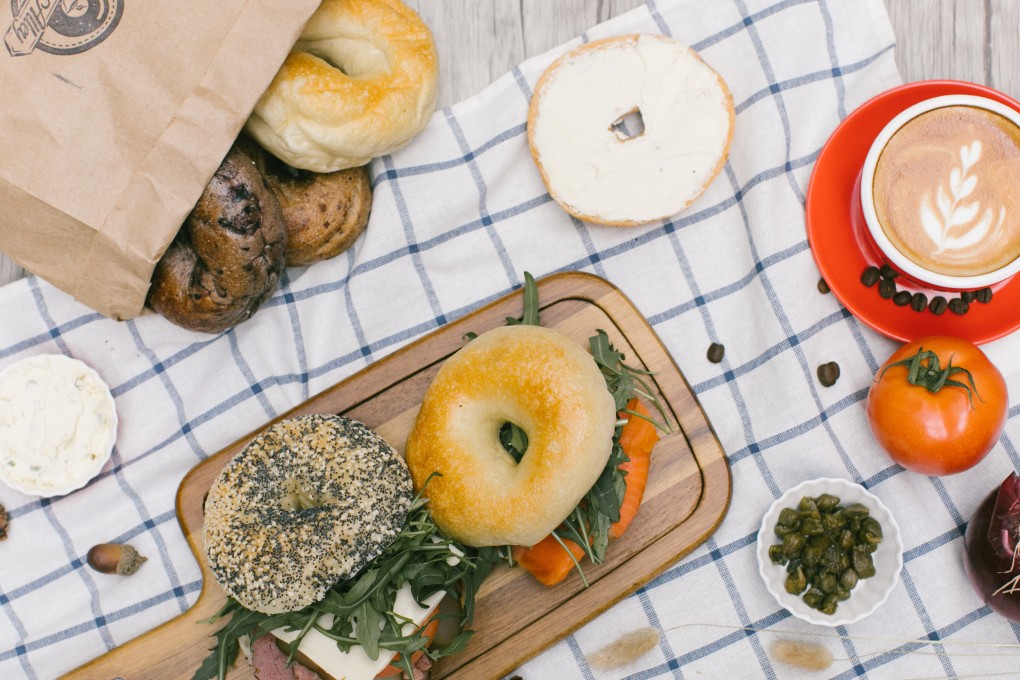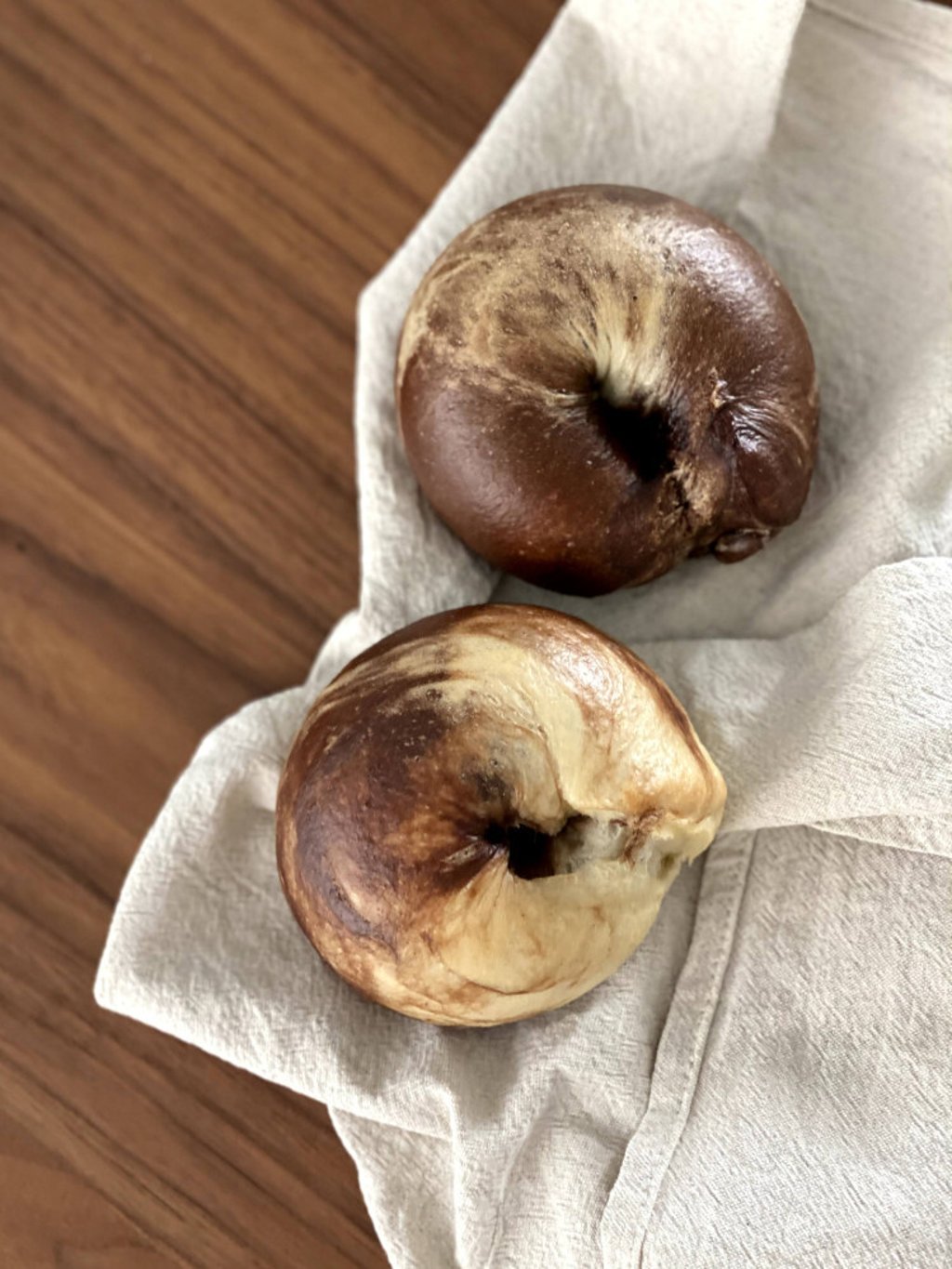Bagel making takes off in Hong Kong, and bakers try novel flavours like algae and black sesame to satisfy their local audience
- Hong Kong-based home bakers have turned their bagel-making hobby into a part-time enterprise, and post about their wares on Instagram
- Some dream of baking bagels full-time and opening bricks-and-mortar stores, as James Chan, who owns Bagels Alley, and Rebecca Schrage of Schragels have done

Sourdough bread is not the only baked good that people have discovered – or rediscovered – while stuck at home during the coronavirus pandemic. Home bakers in Hong Kong have also fallen for the humble bagel.
Ring-shaped bread dates back to the Middle Ages in Europe, but the bagel as it is known today is associated with Jewish immigrants to Britain, the United States (New York, in particular) and Canada (especially Montreal). It has never gained much of a foothold in Hong Kong – but recently a number of chefs have turned their bagel baking hobby into a part-time enterprise, posting about their wares on Instagram.


“I found many people here never had bagels because they think it looks dense and dry. Therefore, I was determined to find the perfect recipe with the right balance of chewiness and density. [Their] visual aesthetic is also important to me, coming from a design background.”